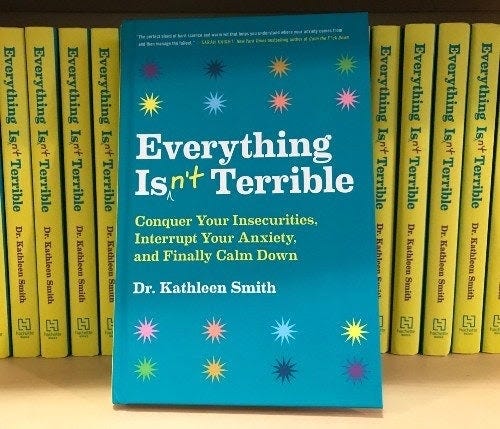The Little Boosts That Keep Us From Ourselves
How to grow up without praise, attention, or cooperation.
It’s a snow day here in DC, and Capitol Hill is officially open for sledding! Last week I wrote about how anxiety distorts our to-do list for paid subscribers. Thanks again to everyone for their continued support! - K
One of the tricky things about humans is that we appear more mature than we really are. Our functioning can vary wildly, depending on who’s happy with us, who nods their head when we talk, or how the car in front of us is driving.
Bowen theory distinguishes between our functional level of maturity (a.k.a. differentiation of self) and our basic level of maturity.
Your functional level will vary based on who’s in the room, how they’re responding to you, and any number of random variables.
Your basic level is who you are regardless of whether others cooperate.
Temporary, functional boosts might happen when:
You find a new guru to follow.
You drink that second cup of coffee.
You get a good evaluation at work.
Someone laughs at your joke.
The weather is nice.
A friend replied to your text.
You’re wearing your favorite outfit.
Your sports team wins.
Your kid has a stellar report card.
Another person subscribes to your newsletter (Hi, it’s me!)
Relationship patterns also can increase the functional level. You might seem more mature if:
Your partner lets you overfunction for them.
You’ve cut someone out of your life.
You’re really worried about your kid.
Your therapist says you’re doing great work.
A friend is struggling and looking for support.
Coworkers seek out your advice.
People consider you to be an expert at something.
Functional boosts aren’t bad. It’s nice to have people respect you. But when we divert all our energy towards controlling things we can’t always control (especially other people), there’s not much left for working on goals and solving problems.
So how do you raise that basic level? What does real growth look like?
Respecting the individuality of others, and not putting pressure on them to be a certain way.
Not trying to be over-responsible for others.
Diverting energy towards your goals and interests, rather than getting attention or approval.
Learning to manage anxiety in ways that don’t demand others change.
Taking the time to define your beliefs and principles.
Taking on the closeness of important and intimate relationships without losing self, or demanding others give up self, in the process.
Allowing your beliefs to be reconsidered based on new information.
Trying to stay plugged into hard problems over the long haul.
Working on having a more objective understanding of yourself and your family.
Focusing on how to respond to people’s bad behavior, rather than trying to control others.
Working on tolerating the anxiety that comes with doing what you think is right.
It is so much easier to just buy yourself a little treat, do what someone says on their podcast, or take a colleague’s praise as fact. But I’ve seen the way my own functioning fluctuates when I am very focused on these things. When I’m chasing after these functional boosts like power-ups in a video game, my relationships flounder. The things that are really important to me remain untouched.
You can’t control the fact that attention might make you feel good, or that a sunny day gives you energy. But you can think about how you use relationships to fill the gaps in your own maturity and what it might look like to take a step towards real growth.
Your exercise: Make a quick list of some of the functional boosts you’ve gotten over the years. How much energy was spent chasing after these boosts? Did you experience any dips in mood and functioning after you ran out of juice? What relationships were more constrained, less free and open, because you needed people to respond or be a certain way?
Your assignment: Where do you want to test out existing with less focus on gathering these boosts (i.e. praise, attention, or approval)? Are you sharing your thinking without asking your partner to agree with you? Doing something you genuinely enjoy, even though you won’t be great at it? Running a meeting at work and not asking twenty people how they think it went? How can you make space to evaluate yourself? To manage the inevitable anxiety that comes with being true to yourself?
News from Kathleen
Want a signed, personalized copy of my next book, TRUE TO YOU? You can preorder it from my neighborhood bookstore, East City Bookshop. I’ll also have some bonus materials available for newsletter subscribers who preorder. More on that soon!
Want to read more of my writing? Get my book, Everything Isn't Terrible, from Amazon, Barnes and Noble, or your local bookstore (best option).
Want a free anxiety journal with the book? Calming Down & Growing Up: A 30 Day Anxiety Journal includes thirty daily prompts to help you reflect on and respond to your anxious behaviors. To receive a copy, just email me your receipt of Everything Isn’t Terrible.
Email me if you’re interested in Bowen theory coaching or want me to speak to your group or workplace. Follow me on Linkedin, Facebook, or Instagram.
Want to learn more about Bowen theory? Visit the Bowen Center’s website to learn more about their conferences and training programs.





What a fantastic, helpful post. Thank you for sharing your wisdom with us, Kathleen!
Wow, this is a really great thing for me to ponder. Seining mature vs. being mature. I don’t know anything about Bowen theory but now I want to! Thanks for this! (My own therapist recommended your newsletter. Love it.)